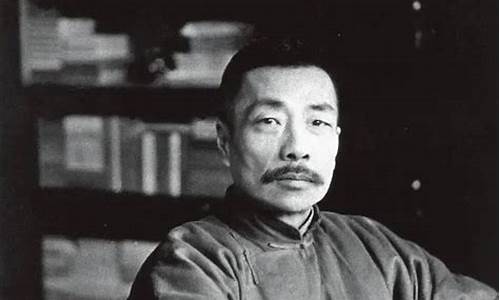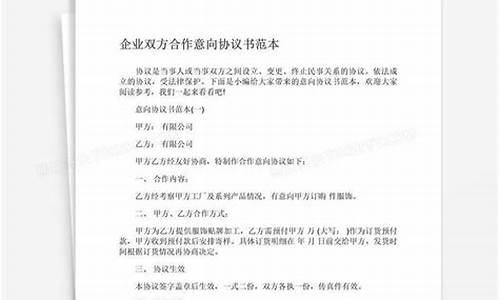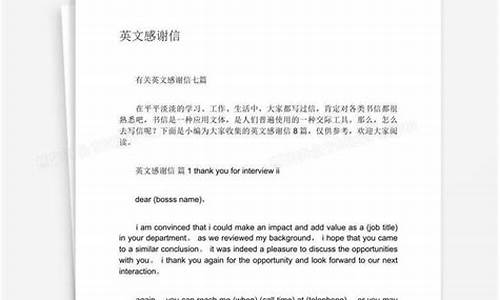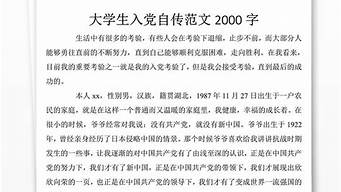鲁迅英文简介
非常感谢大家对鲁迅英文简介问题集合的关注和提问。我会以全面和系统的方式回答每个问题,并为大家提供一些实用的建议和思路。
1.介绍鲁迅的英语作文
2.鲁迅的英文介绍 同时要有中文翻译.
3.谁能给我一篇关于名作家鲁迅的简介(英文)最好短一点,简单一点
4.求一篇介绍鲁迅的英文稿
5.鲁迅的英语简介

介绍鲁迅的英语作文
英语写作中介绍名人是一种常见的考点写作,下面就由我为大家整理的`介绍鲁迅的英语作文,欢迎查看~篇一:介绍鲁迅的英语作文Short-story writer, essayist, critic, and literary theorist who is considered to be one of the greatest figures in 20th-century Chinese literature. Lu Xun, hailed as "commander of China's cultural revolution" by Mao Zedong, is typically regarded as the most influential Chinese writer who was associated with the May Fourth Movement. Lu Xun's acclaimed short stories appeared in three collections between the years 1923 and 1935. He also produced sixteen volumes of essays, reminiscences, prose poetry, historical tales, some sixty classical-style poems, and a dozen volumes of scholarly research, and numerous translations.?
His main works are:Call to Arms (1922) "A Madman's Diary" (1918) "Kong Yiji" (1919) "Medicine" (1919) "Tomorrow" (1920) "A Small Incident" (1920) "The Story of Hair" (1920) " Storm in a Teacup" (1920) "My Old Home" (1921) "The True Story of Ah Q" (1921) "The Double Fifth Festival" (1922) "The White Light" (1922) "The Rabbits and the Cat" (1922) "The Comedy of the Ducks" (1922) "Village Opera" (1922) from Old Tales Retold (1935) Mending Heaven (1935) The Flight to the Moon (1926) Curbing the Flood (1935) Gathering Vetch (1935) Forging the Swords (1926) Leaving the Pass (1935) Opposing Aggression (1934) Resurrecting the Dead (1935)
篇二:介绍鲁迅的英语作文Lu Xun was the pen name of Zhou Shuren (September 25,1881 – October 19,1936) is one of the major Chinese writers of the 20th century.Considered by many to be the founder of modern Chinese literature,he wrote in baihua (白话) (the vernacular) as well as classical Chinese.Lu Xun was a short story writer,editor,translator,critic,essayist and poet.In the 1930s he became the titular head of the Chinese League of Left-Wing Writers in Shanghai.
Lu Xun's works exerted a very substantial influence after the May Fourth Movement to such a point that he was lionized by the Communist regime after 1949.Mao Zedong himself was a lifelong admirer of Lu Xun's works.Though sympathetic to the ideals of the Left,Lu Xun never actually joined the Chinese Communist Party.Lu Xun's works are known to English readers through numerous translations,especially Selected Stories of Lu Hsun translated by Yang Hsien-yi and Gladys Yang.
篇三:介绍鲁迅的英语作文As it is known to us all ,LuXun is a famous Chinese writer. He is not only a writer, thinker, but also the founder of Chinese Literature . He wrote many classic novels and his stories, which are translated many languages, were made into film,such as The True Story of AH Q and The New Year's Sacrifice,which deeply showed people's suffering in the old days.
Because of his achievement to Chinese literature, Chairman Mao spoke highly of him. Besides, some of his works were selected into the text books in high school and university. I think you'll gain a lot from reading his works.
鲁迅的英文介绍 同时要有中文翻译.
Mr. Lu Xun was born in 1881 in a bureaucratic landlord's family in Shaoxing, Zhejiang Province. At the age of 13, his grandfather, who was an official in Beijing, was imprisoned for a case of imperial examination fraud. After that, his father became ill for a long time and died. His family fell down and sold his house. Family changes have had a profound impact on young Lu Xun.The family changes and the life experience after the changes also made Lu Xun close to the lower class people from his youth. His grandmother's family lived in the countryside, which gave him an opportunity to get in touch with and understand the life of the peasants.
Guangxu 24 years (1898), April, into the Nanjing Marine School, renamed Zhou Shuren. In December, he was urged to take the county examination by his uncle. After winning the list, he stopped taking the government examination because his fourth brother was ill and went on to Nanjing to study.
翻译:
鲁迅先生于1881年出生在浙江绍兴一个官僚地主的家庭里,13岁那年,他原来在京城做官的祖父因科举舞弊案锒铛入狱,此后他的父亲又长期患病,终至死亡,家境败落下来也因此卖了房子。家庭的变故对少年鲁迅产生了深刻的影响。
家庭的变故和变故后的人生体验,也使鲁迅从少年时候起就亲近下层人民。他的外祖母家住在农村,这使他有机会接触和了解农民的生活。
光绪二十四年(1898年),4月,入南京水师学堂,改名周树人。12月,被本家叔催促参加县考,中榜后以四弟患病为由不再参加府考,继续前往南京求学。
扩展资料
鲁迅是20世纪的文化巨人,他在小说、散文、杂文、木刻、现代诗、旧体诗、名著翻译、古籍校勘和现代学术等多个领域都有巨大贡献。作为中国现代文学的伟大奠基者,鲁迅创作的为数不多的小说建立了中国小说的新形式;他所创作散文更是“显示了文学革命的实绩”。
他的所开创的杂文文体富有现代性、自由性、批判性和战斗性,是后世作家最常使用的“批判武器”,他所创作的杂文更是中国社会、政治、历史、法律、宗教、道德、哲学、文学、艺术乃至文化心理、民性、民情、民俗的百科全书。
几乎所有的中国作家都在鲁迅开创的基础上,发展了不同的方面的文学风格体式。作为翻译家他大量的翻译了外国的文学作品、科学自然作品为开启民智,引入先进的科学文化思想做出了巨大的贡献。
百度百科-鲁迅
谁能给我一篇关于名作家鲁迅的简介(英文)最好短一点,简单一点
鲁迅(1881-1936),清光绪七年八月初三(1881年9月25日)生于浙江省绍兴府会稽县(今绍兴市)东昌坊口.原名周樟寿,字豫山,后改名为周树人,字豫才.至三十八岁,始用“鲁迅”为笔名.浙江绍兴人(祖籍河南省正阳县),是文学家、思想家和革命家,鲁迅的精神被称为中华民族魂,并且是中国现代文学的奠基人之一.鲁迅的母亲是鲁瑞,父亲是周伯宜.在这一生中他写了小说,散文,杂文100多篇
Lu Xun (1881-1936) and Qing Guangxu August 3rd 2007 (September 25,1881) was born in Shaoxing,Zhejiang Province House Huiji County (now Shaoxing City) Fairmont Square mouth.Zhang Shou-name,the word Yu Shan,later renamed for ZHOU Shu,Yu word only.And 38,before "Lu Xun" as a pseudonym.Shaoxing,Zhejiang (native of Henan Province,Zheng Yangxian),is a writer,philosopher and revolutionary,the spirit of Lu Xun as the soul of the Chinese nation and China is one of the founders of modern literature.Lu Xun's mother is Lu Rui,and his father is Zhoubo Yi.In this life,he wrote novels,prose,essays more than 100 articles
求一篇介绍鲁迅的英文稿
Lu hsun, who was 周樟寿 字豫山 豫亭, and, a native of shaoxing, zhejiang, 字豫才 周树人. the modern chinese writer, thinkers, and other revolutionaries. the representative of the wandering : at the story of the new journal of maniacs on the 朝花夕拾
翻译如下:鲁迅,原名周樟寿,字豫山、豫亭,后改为周树人,字豫才,浙江绍兴人。中国现代文学家、思想家、革命家。代表作:《呐喊》《彷徨》,《故事新编》《狂人日记》《朝花夕拾》
鲁迅的英语简介
Lu Xun was the pen name of Zhou Shuren (September 25, 1881 – October 19, 1936) is one of the major Chinese writers of the 20th century. Considered by many to be the founder of modern Chinese literature, he wrote in baihua (白话) (the vernacular) as well as classical Chinese. Lu Xun was a short story writer, editor, translator, critic, essayist and poet. In the 1930s he became the titular head of the Chinese League of Left-Wing Writers in Shanghai.
Lu Xun's works exerted a very substantial influence after the May Fourth Movement to such a point that he was lionized by the Communist regime after 1949. Mao Zedong himself was a lifelong admirer of Lu Xun's works. Though sympathetic to the ideals of the Left, Lu Xun never actually joined the Chinese Communist Party. Lu Xun's works are known to English readers through numerous translations, especially Selected Stories of Lu Hsun translated by Yang Hsien-yi and Gladys Yang.
······································
说行天下 是非常不错的小说网站大全
快来一起分享吧~~~
Lu Xun (pinyin, Traditional Chinese: 鲁迅; Simplified Chinese: 鲁迅; pinyin: Lǔ Xùn) or Lu Hsün (Wade-Giles), pen name of Zhou Shuren (Traditional Chinese: 周树人; Simplified Chinese: 周树人; Hanyu Pinyin: Zhōu Shùrén; Wade-Giles: Chou Shu-jen) (September 25, 1881 – October 19, 1936) is one of the major Chinese writers of the 20th century. Considered the founder of modern baihua (白话 báihuà) literature, Lu Xun was a short story writer, editor, translator, critic and essayist. He was one of the founders of the China League of Left-Wing Writers in Shanghai. Lu Xun's works exerted a very substantial influence after the May Fourth Movement.
Life
Early life
Born in Shaoxing, Zhejiang province, Lu Xun was first named Zhou Zhangshu and later renamed Shuren, literally, "to nurture a person". He was the eldest of four brothers. His younger brother Zhou Zuoren, four years his junior, would become a notable writer in his own right.
The Shaoxing Zhou family was very well-educated and his paternal grandfather Zhou Fuqing 周福清 held posts in the Hanling Academy; Zhou's mother, nee Lu, taught herself to read. However, after a case of bribery was exposed - in which Zhou Fuqing tried to procure an office for his son, Lu Xun's father, Zhou Boyi - the family fortunes declined. Zhou Fuqing was arrested and almost beheaded. Meanwhile, a young Zhou Shuren was brought up by an elderly servant Ah Chang, whom he called Chang Ma; one of Lu Xun favorite childhood books was the Classic of mountains and seas.
His father's chronic illness and eventual death during Lu Xun's adolescence, apparently from alcoholism, persuaded Zhou to study medicine. Distrusting traditional Chinese medicine (which in his time was often practised by charlatans, and which failed to cure his father), he went abroad to pursue a Western medical degree at Tohoku High Medical Institute (now part of Tohoku University) in Sendai, Japan in 1904.
Lu Xun in his youth
Education
Lu Xun was educated at Jiangnan Naval Academy 江南水师学堂 (1898-99), and later transferred to the School of Mines and Railways 矿路学堂 at Jiangnan Military Academy 江南陆师学堂. It was there Lu Xun had his first contacts with Western learning, especially the sciences; he studied some German and English, reading, amongst some translated books, Huxley's Evolution and Ethics, J. S. Mill's On Liberty, as well as novels like Ivanhoe and Uncle Tom's Cabin.
On a Qing government scholarship, Lu Xun left for Japan in 1902. He first attended the Kobun Gakuin (Hongwen xueyuan, 弘文学院), a preparatory language school for Chinese students attending Japanese universities. His earliest essays, written in Classical Chinese, date from here. Lu also practised some jujitsu.
Lu Xun returned home briefly in 1903. Aged 22, he complied to an arranged marriage with a local gentry girl, Zhu An 朱安. Zhu, illiterate and with bound feet], was handpicked by his mother. Lu Xun possibly never consummated this marriage, although he took care of her material needs all his life.
Sendai
Lu Xun, in the Preface to Nahan, his first story collection, revealed why he gave up pursuing a medical career. One day after class, one of his Japanese instructors screened a lantern slide documenting the imminent execution of an alleged Chinese spy during the Russo-Japanese War, 1904-05. Lu Xun was shocked by the apathy of the Chinese onlookers; he decided it was more important to cure his compatriots' spiritual ills rather their physical diseases.
At the time, I hadn't seen any of my fellow Chinese in a long time, but one day some of them showed up in a slide. One, with his hands tied behind him, was in the middle of the picture; the others were gathered around him. Physically, they were as strong and healthy as anyone could ask, but their expressions revealed all too clearly that spiritually they were calloused and numb. According to the caption, the Chinese whose hands were bound had been spying on the Japanese military for the Russions. He was about to be decapitated as a 'public example.' The other Chinese gathered around him had come to enjoy the spectacle. (Lyell , pp 23).
Career
In May 1918, Lu Xun used his pen name for the first time and published the first major baihua short story, Kuangren Riji (狂人日记, A Madman's Diary) in . He chose the surname Lu as it was his mother's maiden family name. Partly inspired by the Gogol short story, it was a scathing criticism of outdated Chinese traditions and Confucian feudalism which was metaphorically 'gnawing' at the Chinese like cannibalism.
Another of his well-known longer stories, The True Story of Ah Q (A Q Zhengzhuan, 阿Q正传), was published in the 1920s. The latter became his most famous work. Both works were included in his short story collection Na Han (呐喊) or Call to Arms, published in 1923.
Between 1924 to 1926, Lu wrote his masterpiece of ironic reminiscences, Zhaohua Xishi (朝花夕拾, Dawn Dew-light Collected at Dusk, published 1928), as well as the prose poem collection Ye Cao (野草, Wild Grass, published 1927). Lu Xun also wrote some of the stories to be published in his second short story collection Pang Huang (彷徨, Wandering) in 1926. In 1930 Lu Xun published Zhongguo Xiaoshuo Lüeshi (中国小说略史, A Concise History of Chinese Fiction), a comprehensive overview of Chinese fiction and one of the landmark pieces of twentieth-century Chinese literary criticism.
His other important works include volumes of translations — notably from Russian (he particularly admired Nikolai Gogol and made a translation of Dead Souls, and his own first story's title is inspired by a work of Gogol) — discursive writings like Re Feng (热风, Hot Wind), and many other works such as prose essays, which number around 20 volumes or more. As a left-wing writer, Lu played an important role in the history of Chinese literature. His books were and remain highly influential and popular even today. Lu Xun's works also appear in high school textbooks in Japan. He is known to Japanese by the name Rojin (ロジン in Katakana or 鲁迅 in Kanji).
Lu Xun was also the editor of several left-wing magazines such as New Youth (新青年, Xin Qingnian) and Sprouts (萌芽, Meng Ya). He was the brother of another important Chinese political figure and essayist Zhou Zuoren (周作人). Though highly sympathetic of the Chinese Communist movement, Lu Xun never joined the Communist Party of China. Because of his leanings, and of the role his works played in the subsequent history of the People's Republic of China, Lu Xun's works were banned in Taiwan until late 1980s. He was among the early supporters of the Esperanto movement in China.
Death
Lu Xun passed away in 1936. His remains were interred in a mausoleum within Lu Xun Park in Shanghai.
Style and legacy
Lu Xun's style is wry and incisive. His essays are often sardonic in his societal commentary. His mastery of the vernacular language, coupled with his expertise with tone — often refusing to occupy any easy position — make some of his literary works (like A Q Zhengzhuan, 阿Q正传, The True Story of Ah Q) truly difficult to translate.
Lu Xun's importance to modern Chinese literature lies in the fact that he contributed significantly to every modern literary genre except the novel during his lifetime.
Thought
Lu Xun, hailed as "commander of China's cultural revolution" by Mao Zedong, is typically regarded as the most influential Chinese writer who was associated with the May Fourth Movement. He produced harsh criticism of social problems in China, particularly in his analysis of the "Chinese national character." He has often been considered to have had leftist leanings. Called by some a "champion of common humanity," he helped bring many fellow writers to support communist thought, though he never took the step of actually joining the Communist Party. It should be remarked, however, that throughout his work the individual is given more emphasis over collectivistic concerns.
Works
Stories
from Call to Arms (1922)
"A Madman's Diary" (1918)
"Kong Yiji" (1919)
"Medicine" (1919)
"Tomorrow" (1920)
"A Small Incident" (1920)
"The Story of Hair" (1920)
" Storm in a Teacup" (1920)
"My Old Home" (1921)
"The True Story of Ah Q" (1921)
"The Double Fifth Festival" (1922)
"The White Light" (1922)
"The Rabbits and the Cat" (1922)
"The Comedy of the Ducks" (1922)
"Village Opera" (1922)
"New Year Sacrifice" (1924)
from Old Tales Retold (1935)
Mending Heaven (1935)
The Flight to the Moon (1926)
Curbing the Flood (1935)
Gathering Vetch (1935)
Forging the Swords (1926)
Leaving the Pass (1935)
Opposing Aggression (1934)
Resurrecting the Dead (1935)
Essays
Collections
Call to Arms (Na Han) (1923)
Wandering (Pang Huang) (1925)
Old Tales Retold (Gu Shi Xin Bian) (1935)
Wild Grass (Ye Cao)
Dawn Blossoms Plucked at Dusk, a collection of essays about his youth
Brief History of Chinese Fiction, a substantial study of pre-modern Chinese literature
好了,今天关于“鲁迅英文简介”的话题就讲到这里了。希望大家能够通过我的介绍对“鲁迅英文简介”有更全面的认识,并且能够在今后的实践中更好地运用所学知识。如果您有任何问题或需要进一步的信息,请随时告诉我。
声明:本站所有文章资源内容,如无特殊说明或标注,均为采集网络资源。如若本站内容侵犯了原著者的合法权益,可联系本站删除。












